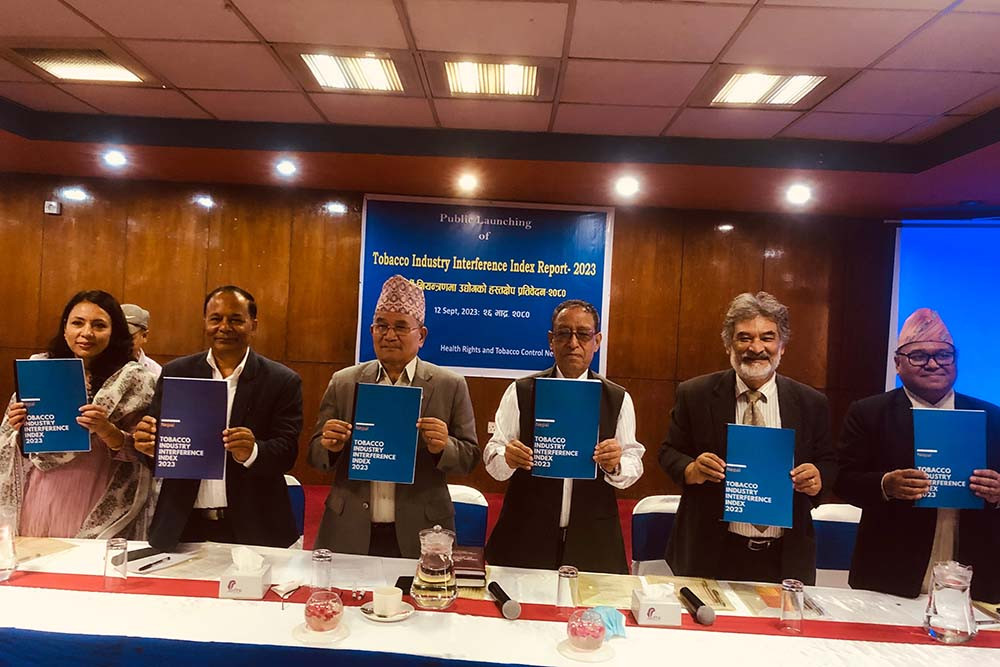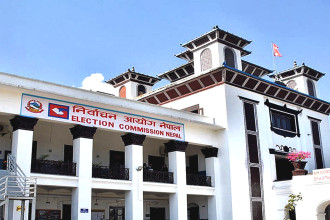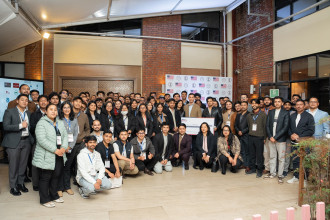
KATHMANDU: Tax on tobacco products could not be increased due to the influence of the tobacco industry at the policy level in Nepal, a study conducted by the Health Rights and Tobacco Control Network, Nepal shows.
It has been found that the direct and indirect interference and influence of the industrialists in the control of tobacco products have continued, Tobacco Industry Interference Index report-2023 showed.
Publishing the study report on the industry interference in tobacco control in 80 countries of the world on Tuesday, experts stressed that tobacco spoils people's health as well as overall social and economic conditions.
Dr Lonim Prasai of the World Health Organisation (WHO) said Nepal's situation in tobacco control is getting worse. "The poor people spend more than 50% of their income on tobacco products and alcohol as they prioritise addiction over education and health," she said, and stressed the need for prevention of consuming tobacco products."
She suggested that the government should work to ban smoking in public places citing that people who do not smoke were also affected.
At the programme, senior public health expert Prof Dr Sharad Raj Onta explained that tobacco is not only related to health but the entire economy. He opined that the element that worsens the health and overall life of the people should not be taken as an element for raising taxes and should be banned.
Dr Dipendra Raman Singh, Additional Secretary of the Ministry of Health and Population, presented the data that showed that Nepali citizens spend Rs 121 billion annually on tobacco products. He presented an illustration that showed a total of 9 million people consumed tobacco and millions of rupees were spent on health treatment of diseases caused by tobacco consumption.
Shanta Lal Mulmi, National Coordinator of Health Rights and Tobacco Control Network, said if tobacco products are banned, it will benefit the state and the people, apart from the profit-seeking industry. Mulmi, who is also a researcher on industry interference in tobacco control, stated that the laws of Nepal and the WHO Framework Convention on Tobacco Control (WHO FCTC) guideline do not allow the promotion of tobacco under any name, however, the tobacco entrepreneurs promote the brand, encourage people to smoke.
Purna Bhakta Duwal, another researcher of the study, said that due to the influence of the industry, the police administration could not strictly control cigarette smoking.
He alleged that the tobacco industry has been illegally working and promoting under the pretext of social responsibility, making actors smoke in film scenes. Even though the tobacco industrialists are not allowed to sit in any meeting of the government bodies, the government bodies allow them to sit in the meetings as stakeholders.
According to Duwal, the study showed that the Ministry of Finance, Ministry of Industries, Commerce and Supplies and Ministry of Home Affairs were indirectly listening to the tobacco industrialists and not making the discussions and decisions made with them transparent.
Ratnashwari Chawal, Coordinator of Health Rights and Tobacco Control Network, Bagmati Province, said the tobacco industry has been marketing under various pretexts and accused the local and provincial governments of being ineffective in tobacco control like the federal government.
Lumbini Province coordinator Purna Lal Chhuke said that the tobacco industry has spread the false message that smoking electric cigarettes is not injurious to health.
Ram Prasad Subedi, President of the Federation of Non-Governmental Organisations, said that the government is not paying heed to the civil society's call for Public health rights.
According to the study report published on Tuesday, the tobacco industry has violated Tobacco Products (Control and Regulatory) Act and The Public Health Service Act by providing financial support to various schools and spreading the wrong message that tobacco products are not bad.





